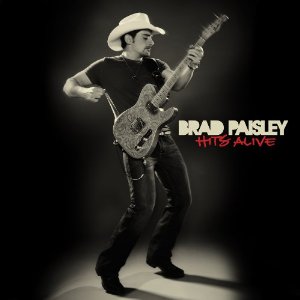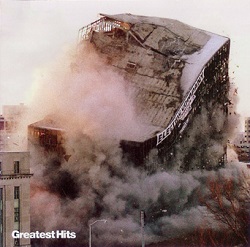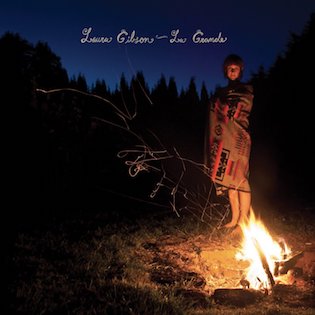
Ratatouille is a 2007 American computer-animated comedy film produced by Pixar and released by Walt Disney Pictures. It is the eighth film produced by Pixar and was co-written and directed by Brad Bird, who took over from Jan Pinkava in 2005. The title refers to a French dish, ratatouille, which is served at the end of the film and is also a play on words about the species of the main character. The plot follows a rat named Remy, who dreams of becoming a chef and tries to achieve his goal by forming an alliance with a Parisian restaurant's garbage boy.

Play is the sixth studio album by American country music artist Brad Paisley. It was released on November 4, 2008. Like all of his previous albums, Play was released on Arista Nashville and produced by Frank Rogers. The album is largely instrumental in nature, except for five vocal tracks. One of these tracks, "Start a Band", has been released as a single and has become Paisley's ninth consecutive Number One country hit, and his thirteenth overall. The album cover photograph was taken at Bristow Run Elementary School in Bristow, Virginia.

Passing Through is the sixteenth studio album released by American country music singer Randy Travis. It is his fourth album for Word Records. The album produced two singles on the Billboard country charts: "Four Walls" at #46 and "Angels" at #48. "That Was Us" was previously recorded by Tracy Lawrence on his 2001 self-titled album.

American Saturday Night is the seventh studio album by American country music artist Brad Paisley. It was released on June 30, 2009, by Arista Nashville. Like all of his previous studio albums, it is produced by Frank Rogers. The first single, "Then," has become his fourteenth Number One on the Hot Country Songs chart. iTunes released songs from the album weekly as part of the countdown to the album's release. "Water" was released on June 9, 2009, followed by the title track on June 16 and "Everybody's Here" on June 23. The second radio single is "Welcome to the Future." The title track was released as the third single on November 16, 2009. As of the chart dated January 8, 2011, the album has sold 714,812 copies in the US. It earned a 2009 Academy of Country Music Awards nomination for "Album of the Year". In 2012, MSN.com listed American Saturday Night as one of the 21 Essential 21st-Century Albums. It is his first album not to feature any instrumental tracks.

Hits Alive is the title of a greatest-hits album package released by American country music artist Brad Paisley. This album contains two CDs of a collection of Paisley's greatest hits spanning his entire career. The first disc contains studio versions, and the second disc contains live versions. It was released on November 2, 2010, on Arista Nashville. It sold 31,000 copies in its first week. As of the chart dated April 16, 2011, the album has sold 235,881 copies in the US.

A Pert Cyclic Omen is the debut album of Electric Company, released on August 8, 1995, on Onion/American Recordings.

Cherry Flavor Night Time is the debut album of Amnesia, released on March 11, 1997 through Supreme Recordings. A limited edition bonus disc contained a remix of the entire album by Brad Laner under his moniker Electric Company.

Lingus is the second studio album by the rock band Amnesia. It was released on June 25, 1998 through Supreme Recordings.

Studio City is an album by Electric Company and Vas Deferens Organization, released in 1999 through Tekito.

Omakase is the third studio album by the dance band Electric Company. It was released in 1999 on Vinyl Communications.

Exitos is the fourth studio album by the electronic band Electric Company. It was released in 2000 on Tigerbeat6.

Slow Food is the fifth album by Electric Company, released on April 9, 2001 through Planet Mu.

62-56 is an EP by the electronic band Electric Company. It was released in 2001 through Tigerbeat6.

Greatest Hits is a remix album by the electronic band Electric Company. It was released in 2001 on Tigerbeat6.

Creative Playthings is the seventh album by Electric Company, released on October 5, 2004 through Tigerbeat6.

Neighbor Singing is the debut solo album of composer Brad Laner, released on November 6, 2007 through Hometapes. Although the Electric Company and Amnesia albums were primarily composed and performed by Laner, Neighbor Singing is the first album to be issued under his own name.

Natural Selections is the second album by Brad Laner, released on August 24, 2010 through Hometapes.

La Grande is the third studio album by American musician Laura Gibson. It was released on January 24, 2012 under Barsuk Records. Gibson wrote the album after spending time in the city of La Grande, Oregon, which served as a basis for the majority of its songs. The album's title track was given a music video released in February 2012.





















